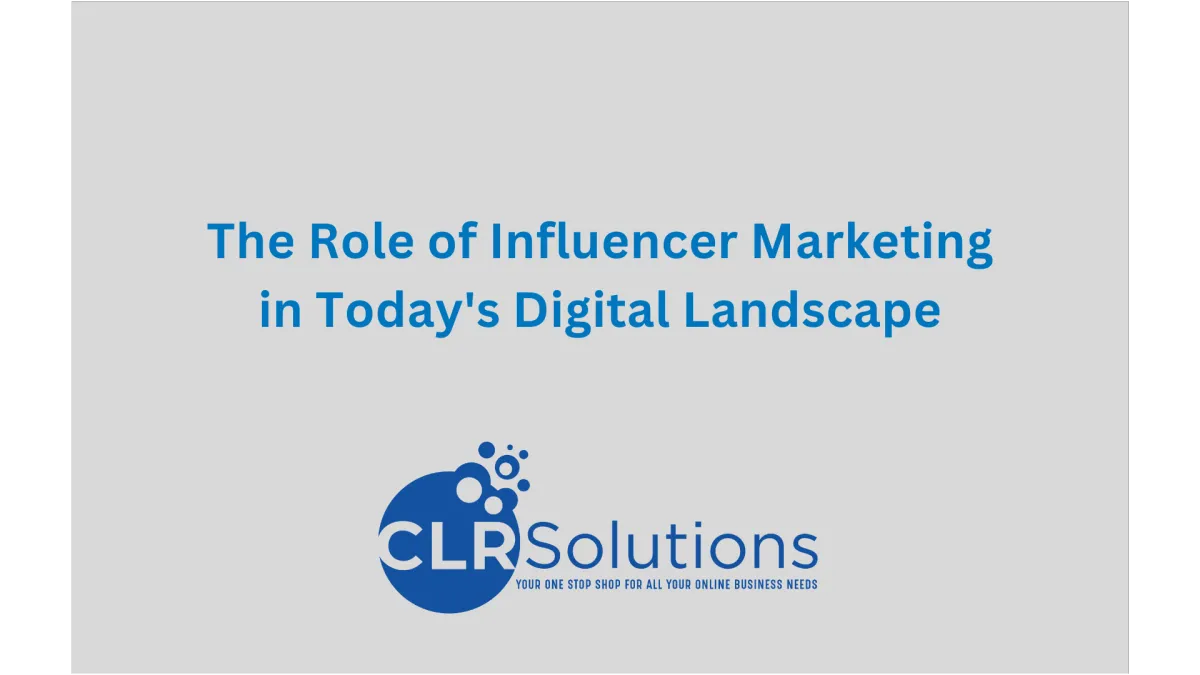In the evolving realm of digital marketing, influencer marketing has emerged as a pivotal strategy for brands looking to enhance their online presence. This approach leverages the reach and credibility of influencers to connect with target audiences more organically. CLR Solutions delves into the role of influencer marketing in today’s digital landscape, examining how it can be strategically employed to amplify brand messages and engage consumers effectively.
Understanding Influencer Marketing
Influencer marketing involves partnering with influential individuals on social media platforms to promote products or services:
Influence over Audience: Influencers have the power to sway the opinions and purchasing decisions of their followers.
Broader Reach and Credibility: They provide access to a larger audience along with added credibility due to their established trust.
Identifying the Right Influencers
Selecting the right influencer is crucial for campaign success:
Relevance to Brand: Choose influencers whose image and audience align with your brand values and target market.
Engagement Rates: Look beyond follower count to engagement rates, which indicate how actively the influencer interacts with their audience.
Building Effective Brand-Influencer Partnerships
Successful influencer marketing is based on strong partnerships:
Clear Communication of Expectations: Ensure both parties are clear about campaign goals, content expectations, and deliverables.
Authentic Collaboration: Authenticity in promotions increases trust and effectiveness.
Leveraging Micro-Influencers for Targeted Reach
Micro-influencers can offer high engagement within niche audiences:
Targeted Audience: Micro-influencers often have a dedicated following in specific niches, offering targeted reach.
Cost-Effective: They are usually more affordable than celebrity influencers, making them ideal for small businesses.
Measuring the Success of Influencer Campaigns
Effective measurement and analytics are vital in assessing campaign impact:
Tracking Key Metrics: Monitor metrics like engagement rates, website traffic from influencer links, and conversion rates.
ROI Analysis: Evaluate the return on investment to understand the campaign's financial impact and inform future strategies.
Integrating Influencer Marketing with Broader Strategies
Influencer marketing should be part of a broader marketing strategy:
Cross-Platform Promotion: Combine influencer campaigns with other marketing channels for a cohesive strategy.
Content Repurposing: Utilize influencer-generated content across various marketing platforms.
Staying Updated with Evolving Trends
The influencer marketing landscape is constantly changing:
Adapting to New Platforms: Stay updated with emerging social media platforms where new influencers are gaining traction.
Evolving Strategies: Be open to evolving your approach based on the latest trends and platform algorithm changes.
Influencer marketing plays a crucial role in today’s digital landscape, offering brands a unique way to reach and engage their target audience through trusted voices. By carefully selecting influencers, building authentic partnerships, leveraging micro-influencers, effectively measuring campaign success, integrating with broader marketing strategies, and staying adaptable to trends, businesses can harness the full potential of influencer marketing. CLR Solutions believes that with strategic planning and execution, influencer marketing can significantly elevate a brand’s digital presence and audience engagement in the modern, dynamic world of digital marketing.
























